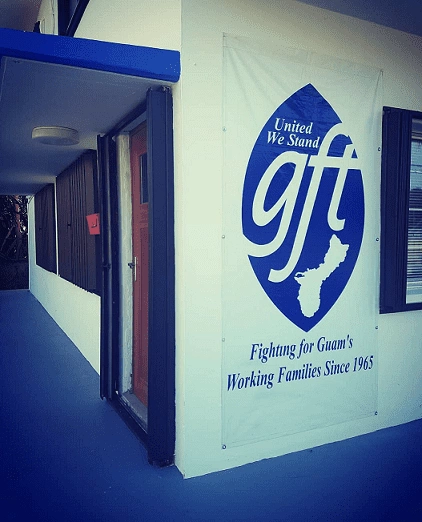The U.S. Supreme Court ruled 5-4 on Wednesday (6/27/18) that government workers who choose not to join a union cannot be charged for the cost of collective bargaining. The case centered on what are known as fair-share or agency fees. In the United States, a union must represent all the workers in a particular bargaining unit, even those who don’t want a union. While no one can be required to be a union member, many states allow unions to collect fees to cover the costs of bargaining and representation. These agency fees exclude money dedicated to politics. The impact at the national level will definitely weaken every union’s economic ability to fight for workers’ rights. This decision should be regarded as a step backwards for working families in the United States and on Guam.
Since Guam is a Right-to-Work (for less) territory, the Janus Case has little or no direct effect on Guam where government workers are not required to pay dues to unions. Guam law allows employees to receive the benefits of collective representation without paying for that representation. These employees who receive the benefits of a union without paying dues slow the progress of improving their lives through collective representation. GFT is able to finance its legal representation through the commitment of its dues paying members. Having a strong membership gives GFT its strength to fight its battles. A victory for one is a victory for all.
GFT commits to the belief that employees shall be treated with respect, equality, and fairness, free from political interference to enjoy job protection and due process. However, these rights are not self-executing and amount to words on paper if they are not aggressively pursued. Through the collective efforts of public employees who join a union, employees have been able to protect those rights and greatly improve their capabilities of achieving a greater good. Over time and through employee participation GFT has shown the capacity to drive positive change, and a better way of life.
The work of GFT has always been difficult, and at times, contentious. Regardless of some hurdles, GFT has achieved forward progress and widened its membership despite stout opposition from those who oppose workers’ rights. Unions work because it represents the decency and respect of working families. The secret to a union’s success is its solidarity—the idea that for all our outward differences, we are all in this together; we rise as one or we fall as one.
For all the real progress we’ve made, we know it’s not enough. Our economy isn’t working well and growing as fast as we like. The middle class is dwindling, poverty is increasing, inequality and injustice are becoming the norm, and working families are getting left behind. Threats of furloughs and lay-off are frequent; healthcare is at risk and full-time workers are struggling to pay the bills. The government appears to only serve the interests of the powerful, and the community is becoming polarizated by politics. Workers have been denied the power to unionize, negotiate for better wages or participate in decisions that affect them.
The silver lining of the Janus Case for Guam is the media attention on what unions have done. In the past, unions fought for reasonable pay increases, end child labor, 40-hour work week, work safety requirements, job security, and family time to enjoy a weekend together. Now more than ever, each employee must accept the responsibility of good citizenship. Every employee needs to become an active member of their union to organize, participate, and stand for working families. As AFT President Randi Weingarten said, “Unions are still the best vehicle working people have to get ahead. Strong unions build strong communities. We make possible what is impossible for individuals acting alone.” Unions sustain our families and make our communities stronger. Working people will stick together and organize to fight back against any attempt to divide and weaken us.

